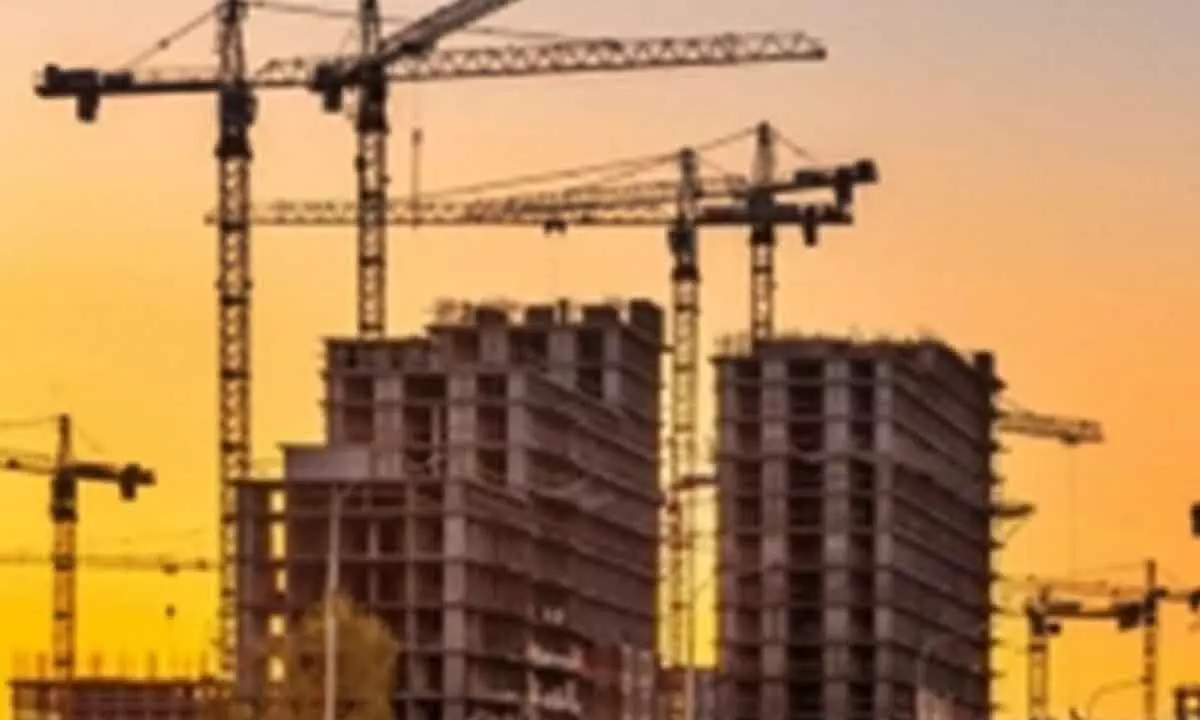Live
- Fanaticism creating communal divisions in India, says Sanjay Raut
- Garena Free Fire Max Codes for August 15, 2025: Get Free Rewards
- Spin in focus as Australia face rare T20I series decider test against Proteas
- BLA slams US decision to brand Majeed Brigade as FTO, calls it 'colonial narrative'
- ‘Roadmap for prosperous India’: HM Amit Shah hails PM Modi’s I-Day address
- Jacob Bethell set to become England’s youngest men’s captain in absence of Brook
- Football: Odegaard won Arsenal captaincy ‘by a mile’: Mikel Arteta
- Himachal Pradesh CM concerned over growing natural calamities
- Kerala CM boycotts ‘At Home’ called by Guv
- Follow Lord Krishna’s teachings to make nation stronger: President Droupadi Murmu

The real estate market is expected to play a pivotal role in the economic growth trajectory of India.
Sydney : The real estate market is expected to play a pivotal role in the economic growth trajectory of India. It will potentially be a $10 trillion market by 2047, accounting for a 14-20 per cent share in the country’s GDP, according to a report on Monday.
The interplay between real estate and India’s economic growth journey over the next few decades is explored in the latest report by Colliers in collaboration with the Confederation of Real Estate Developers' Associations of India (CREDAI) and released at the CREDAI NATCON event in Sydney.
The report noted that along the accelerated journey till 2047, various real estate segments will evolve and continue to proliferate, growing and maturing by varying degrees.
Core assets such as office and residential real estate are likely to mature further and alternative assets such as data centres and senior living will embark upon strong growth trajectories.
Market consolidation, fair pricing, and institutionalisation will become more pervasive across asset classes, especially in the industrial and warehousing segment.
With shifting demographic patterns in India, the median age is likely to increase from about 30 years to approximately 40 years by 2050.
Further, half of the Indian population is projected to live in urban agglomerations by 2050. With rapid urbanisation and supporting factors like infrastructure growth and employment opportunities, real estate traction is likely to expand beyond tier-I cities and create dispersed growth centres in smaller towns and cities.
Peripheral areas of established cities and tier II and III cities of the country will particularly witness accelerated real estate development across asset classes, the report said.
“India has set its sights on becoming a $10 trillion real estate market, driven by the sector’s ability to adapt and innovate. Landmark initiatives such as RERA and REIT regulations have enhanced transparency, improved investor confidence, and streamlined operations across the sector. These reforms, alongside critical programmes like PMAY and Gati Shakti, are creating a conducive environment for sustained real estate development," said Manoj Gaur, Chairman, CREDAI National.
Furthermore, flagship programmes such as the Golden Quadrilateral Project, ‘Make in India’ Programme and National Infrastructure Pipeline have positively impacted multiple real estate segments across the country, particularly the industrial and warehousing segment.
With high-volume freight movement along industrial corridors, we can anticipate amplified requirements for warehouses, logistics hubs, and manufacturing units across multiple smaller locations in the country.
Over the years, driven by strong domestic growth prospects, improvements in ease of doing business, and continual FDI relaxations, foreign capital inflow has also grown significantly across diverse sectors.
Institutional investments in the real estate sector in the last decade have crossed $60 billion, with the majority being funded by foreign players.
In the upcoming years, the Indian real estate sector will also increasingly embrace digitalisation across aspects ranging from planning, design, and construction to property and facilities management. PropTech and Metaverse are likely to mature and elevate Indian real estate to global standards of operational efficiency, transparency, and accountability.
Advanced technologies will also play a major role in decarbonising the real estate sector. With a focus on built spaces, developers will incorporate sustainable elements at every stage of construction. Green certifications in the office market will particularly become a hygiene factor and green adoption levels are likely to increase from about 60-70 per cent to almost 100 per cent over the next few years.
“Favourable demographics and urbanisation trends are likely to accentuate the emergence of over hundred - million plus cities by 2047,” said Badal Yagnik, Chief Executive Officer, Colliers India
“This in turn presents a case for the emergence of multiple real estate hotspots dispersed across the country. Residential, office, and retail segments, particularly, are expected to mature significantly in the next few decades, creating substantial opportunities for investors, developers, and occupiers,” he added.

© 2025 Hyderabad Media House Limited/The Hans India. All rights reserved. Powered by hocalwire.com






